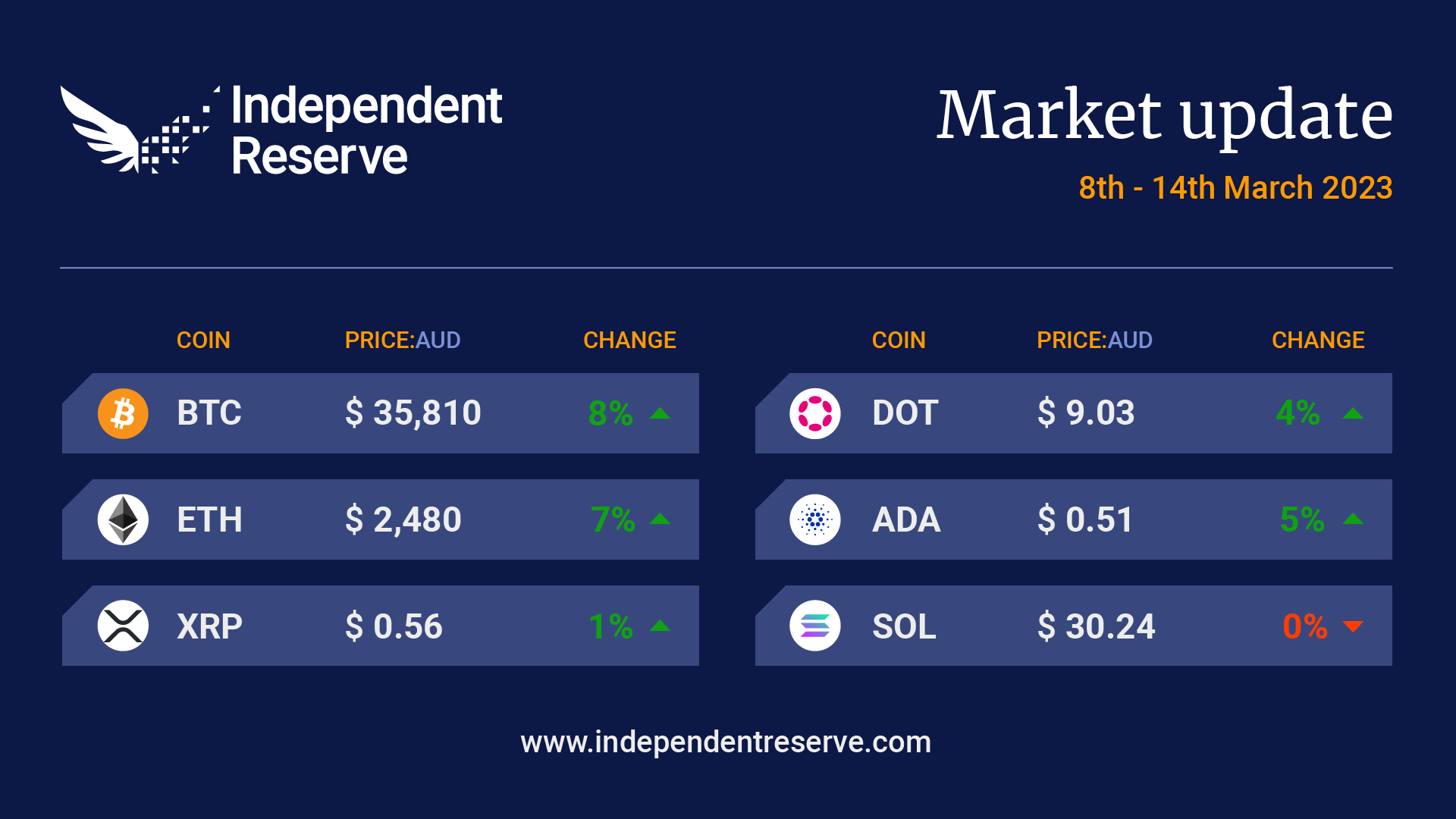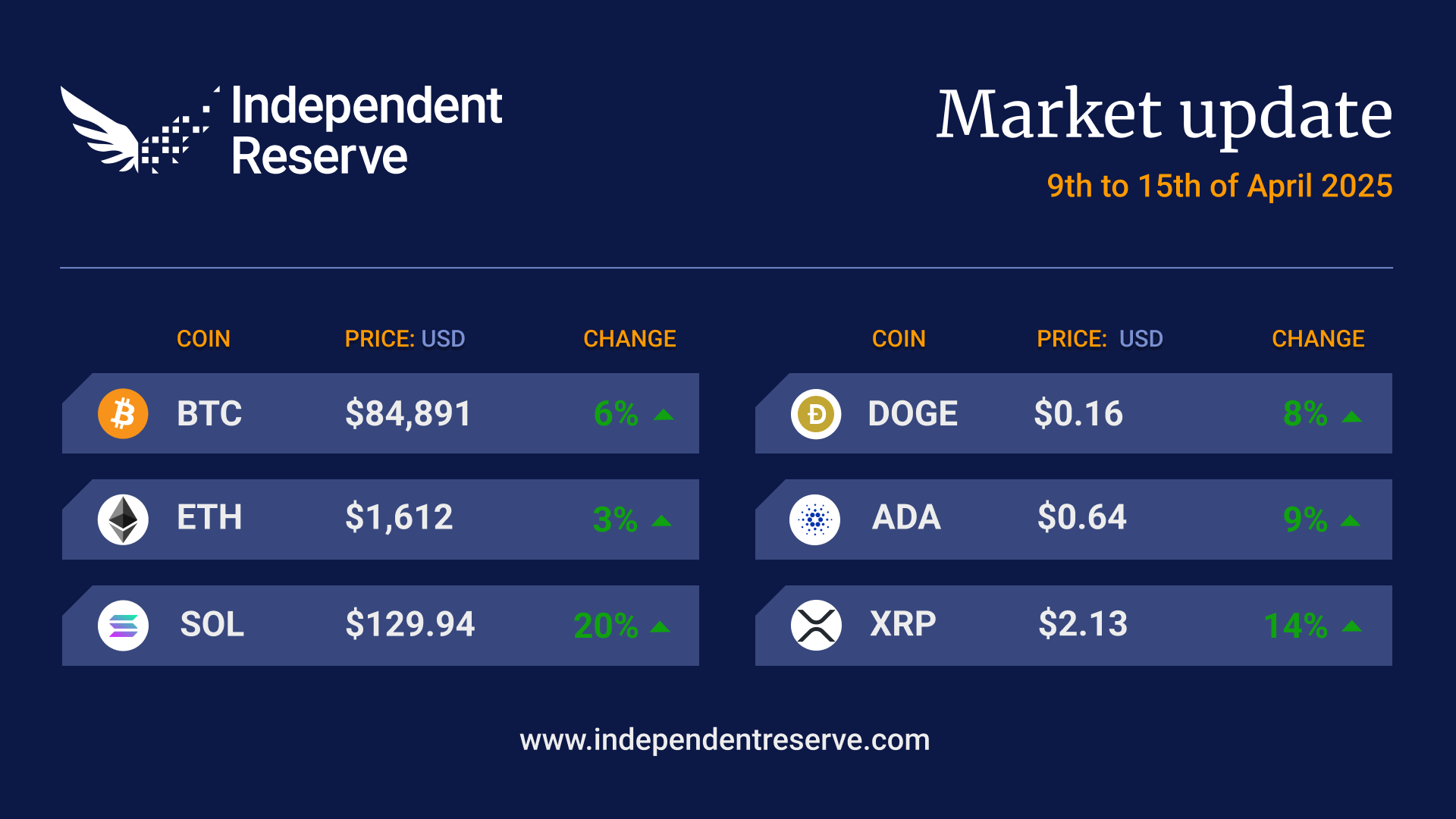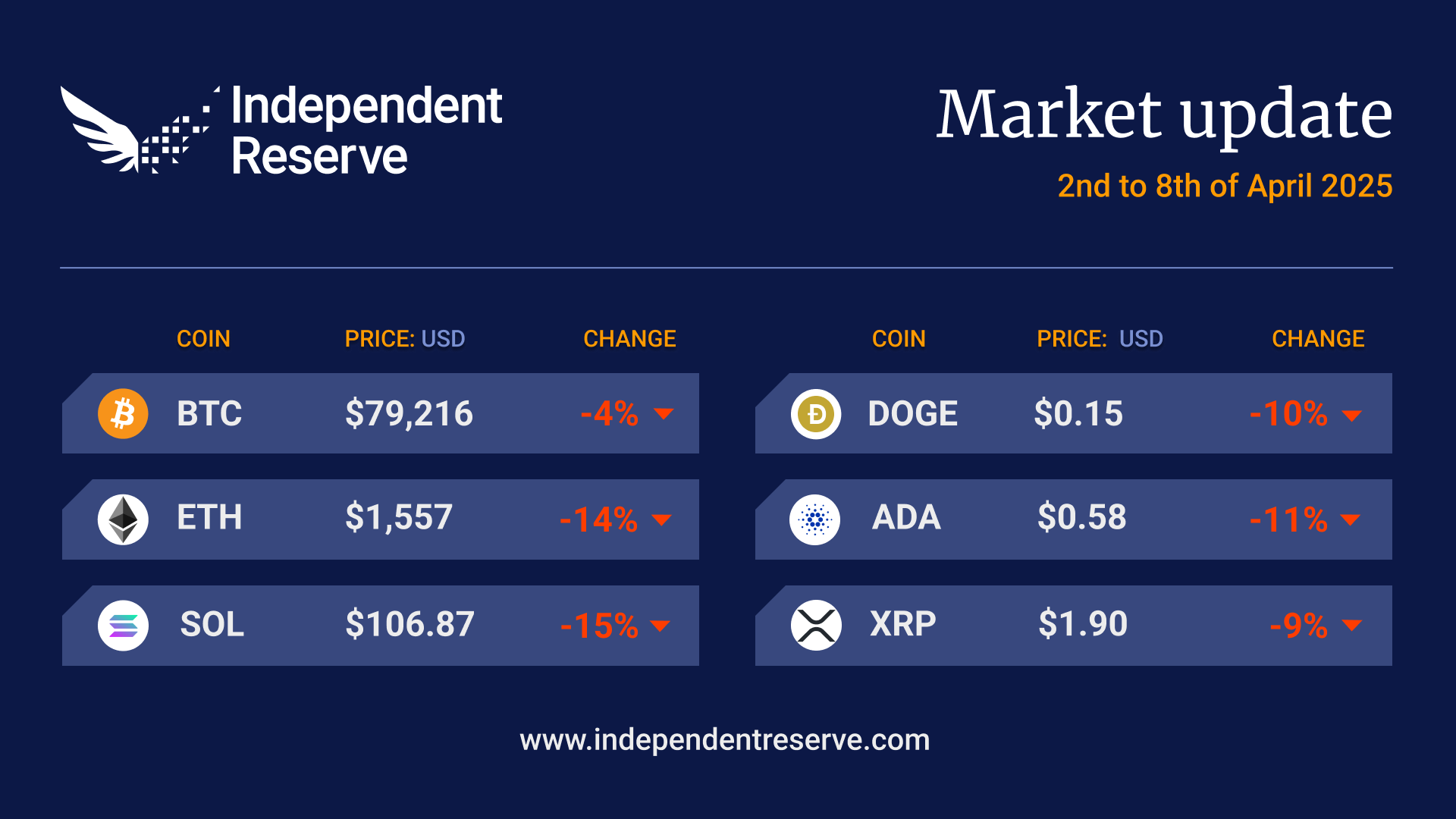In Markets
You might have assumed three crypto-linked banks collapsing and the government taking aim at crypto mining would put downward pressure on markets, but you’d be wrong. So is it really ‘long Bitcoin, short the bankers’ as economist Alex Kruger tweeted today, alongside a graph of bank stock prices plunging by double digits and Bitcoin surging? As usual, nobody is 100% sure, and there are a lot of moving parts: traditional markets now expect interest rate hikes to be lower to avoid putting more pressure on the banking system. USDC’s wobbles this week have woken Bitcoiners up to the fact it might not be a safe place to park money and some investors have been converting to BTC. Binance is also converting its billion-dollar crypto industry recovery fund from BUSD into Bitcoin, Ethereum and BNB, and the “bailout” of the three banks yesterday helped restore confidence in USDC and injected liquidity into the system (which some are calling “ stealth quantitative easing ”). The US Government, however, claims the bailout isn’t a bailout . Bitcoin plunged below the US$20K (A$30K) mark this week but has since surged by double digits to hit $35,800 (US$24,220). It ends the week 8.1% up on seven days ago. Ethereum was up 7.4% to trade around AU$2,480 (US$1,680), XRP was flat, Cardano was up 4.5%, Polygon (5.4%) and Dogecoin finished 2% in the red. The Crypto Fear and Greed Index is at 49 or neutral.

Update from Independent Reserve
Regarding the recent developments in US banking, we can confirm that we have no exposure to Silicon Valley Bank, Silvergate Bank, or Signature bank. Regardless of the upheaval, there is no risk to client funds and exchange operations remain uninterrupted. Please note, however, that USD deposits have been temporarily disabled, we will activate them again as soon as possible.
From the OTC desk
USD banking rails for cryptocurrencies have materially slowed with the closure of Silvergate Capital and now Signature Bank. This is despite the ‘ Joint Statement by Treasury, Federal Reserve, and FDIC ’ (depositor guarantee) to make all depositors whole and provide a Bank Term Funding Program (BTFP) to ensure liquidity.
The delay has arisen due to two primary changes:
- The rapid adjustment required for new banking counterparts, new Standard Settlement Instructions (SSI’s) between counterparts and the required testing of banking rails.
- Most cryptocurrency USD settlements occurred over the SEN or SIGNET networks provided by Silvergate and Signature (respectively) for near instant payments. These have now closed.
The depositor liquidity draw (and equity market collapse) of the regional US banks has materially repriced market interest rate expectations, for both the US and Australia. Last week, US 2yr notes were trading above 5%. Right here and now, US 2yr notes are trading at 4.06%. This near 100bps adjustment, has resulted in short-term interest rate market pricing in interest rate cuts from the Federal Open Market Committee (FOMC) by Q3, 2023!
Critical to risk asset and cryptocurrency pricing will be the February US inflation data, which is due on Tuesday at 11:30pm (AEDT). Goldman Sachs are now predicting the FOMC to keep interest rates on hold at their 22 nd of March meeting. Last week, the debate was whether a 25bp or 50bp increase would be appropriate.
“In light of the stress in the banking system, we no longer expect the FOMC to deliver a rate hike at its next meeting on March 22,” Goldman economist Jan Hatzius said in a Sunday note.
The current market expectation for core US inflation (February) is 5.5%, relative to 5.6% previous. Watch this space.
On the OTC desk – over the last 48 hours, cryptocurrencies have decoupled from US tech stocks to now proxy bank risk and interest rate repricing. There has remained a great deal of concern about the solvency and liquidity positioning of Circle, who have announced US$3.3B being held at Silicon Valley Bank, as well as two new banking partners for payments (BNY Mellon and Cross River Bank). The result of which saw a short-term loss of peg between USDC and USD. Post the depositor guarantee, the peg has now been re-established. There remains a backlog of payments for Circle based conversions, with many counterparts looking to offramp from USDC into USD. USDT, BTC and ETH have remained beneficiaries of Circle’s ill-fortune, seeing material inflow. Expect cryptocurrency prices to be highly volatile and liquidity to be thin this week – all eyes will be on US CPI and any communication from the Federal Reserve.
For any further information, please feel free to reach out.
Silicon Valley Bank falls
Last week we were nervously waiting for Silvergate to collapse… but then two other banks, Silicon Valley Bank (SVB) and Signature Bank, were shuttered as well. Silvergate Capital Corporation announced on March 8 that it will ” voluntarily liquidate ” Silvergate Bank and that the plan will include “full repayment of all deposits.” The news was dwarfed by the failure of SVB. It’s the 16th largest bank in the US (somewhere in size between ANZ and a regional bank) and its failure was related to interest rate rises, poor risk management and a bank run that saw the Federal Deposit Insurance Corporation take over. SVB provides banking to half of the tech companies in the US, and also crypto companies like Sequoia Capital and Andreessen Horowitz… and USDC issuer Circle.
Circling the drain
Circle has US$3.3 billion (A$4.95B) in SVB backing USDC, which caused the stablecoin to plunge below US 90 cents. Maker DAO, which is behind decentralised stablecoin DAI, backed its own coin with 52% USDC, which saw DAI also plunge below 90 cents and the DAO came up with an emergency plan to deal with the issue (while lots of degens took the opportunity to pay back DeFi loans at a 10% discount ). Eight of the top ten stablecoins wobbled below their pegs, but Tether was actually worth more than a dollar as investors competed to get some. Things looked bad over the weekend as Coinbase and Binance halted USDC conversions, however, Circle announced it would use ” corporate resources ” to cover the shortfall and would continue to honour redemptions 1:1. Treasury Secretary Janet Yellen and Fed chair Jerome Powell then announced a bailout (at no cost to taxpayers allegedly) would ensure SVB and Signature bank depositors will get their money back, which saw USDC return to its peg. Circle expanded its banking ties with BNY Mellon and signed a deal with Cross River Bank to look after producing and redeeming USDC.

Signature move by regulators
Signature Bank was the major crypto industry bank alongside Silvergate and the Treasury announcement of the bailout-that-isn’t also revealed Signature was being shuttered by regulators citing “systemic risk.” While the bank did suffer a run of US$10 billion (A$15B) on Friday, it had slowed by Sunday and the bank was reportedly still solvent. Bank board member and former congressman Barney Frank told CNBC that “I think part of what happened was that regulators wanted to send a very strong anti-crypto message.” The bank has deposits totalling US$88.95 billion (A$133.5B) and its closure leaves US-based crypto companies scrambling to find an alternative. Fortune wrote : “Signature was not only one of the last banks to offer services to crypto companies, but also ran the popular real-time payments processor Signet… For now, it is unclear what types of financial institutions will partner with crypto companies.” Blockworks founder Jason Yanowitz suggested alternatives include BCB Group, Cross River, Series, BNY Mellon, Customers Bank and Jewel.
Biden budget proposals
President Joe Biden came out firing at the crypto industry , with various proposals he hopes to include in the US budget. Crypto miners in the US will be hit with a 30% taxation of the electricity cost used — whether renewable or fossil fuel powered — as he argues it’s delaying the transition to renewables. Crypto wash sales will also be outlawed — that’s where you sell coins at a loss to claim a deduction at tax time and then immediately buy the coins back. Another proposal not specific to crypto but likely to hit many investors is that long-term capital gains over US$1 million (A$1.5M) will be taxed at 39.6% rather than the current 20% rate.
Ethereum is a security says NY AG
The New York Attorney General has filed a lawsuit against KuCoin claiming she was able to buy and sell on the exchange which doesn’t have a licence in New York. Her office said in a statement: “This action is one of the first times a regulator is claiming in court that ETH, one of the largest cryptocurrencies available, is a security .” It pointed to the Howey Test and cited the SEC versus LBRY case, where LBRY lost against a claim it was an unregistered security. SEC boss Gary Gensler seems to agree ETH is a security, but the chairman of the Commodities and Futures Trading Commission Rostin Behnam told the Senate Agriculture Committee this week that Ethereum is actually a commodity.
Grayscale case shows signs for optimism
The judge overseeing Grayscale’s court case against the SEC for not approving a spot Bitcoin ETF appears sympathetic to the crypto company’s arguments. The SEC has already approved a Bitcoin Futures ETF and Judge Rao said the regulator needed to explain how it understands “the relationship between Bitcoin Futures and the spot price of Bitcoin” given one is a derivative of the other. In other words, why deny a spot ETF while approving a futures ETF? Bloomberg senior ETF analyst Eric Balchunas said the SEC appeared to be “a bit rattled” by Judge Rao’s questions. The ruling could take 3-6 months however. Meanwhile, the SEC rejected Van Eck’s latest Bitcoin ETF application , drawing the ire of two of its own commissioners: Hester Pierce and Mark Uyeda.
Until next week, Happy Trading!


